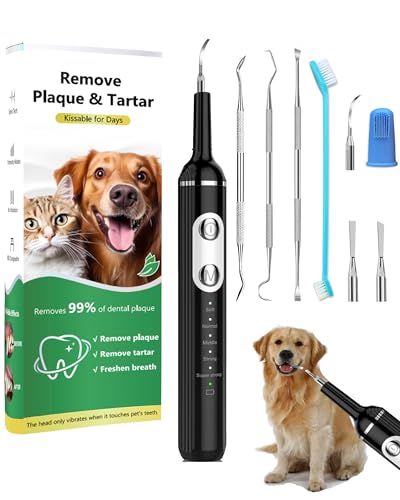




As a pet owner, one of the most concerning situations is observing a lack of interest in meals from your furry companion. It can be puzzling and worrisome, especially when you know that proper nutrition is vital for their growth and overall health. In this article, I aim to explore the possible reasons behind this behavior and offer insights on how to address it.
In the journey of raising a young dog, there can be several factors contributing to their reluctance to consume their regular diet. From health issues to behavioral patterns, it’s crucial to understand the underlying causes to provide appropriate care and ensure their well-being. By examining these aspects, we can better support our four-legged friends and help them regain their appetite.
Through my own experiences and research, I have discovered that there are many facets to consider when dealing with a finicky eater. This discussion will delve into common reasons, ranging from environmental changes to possible medical conditions. Additionally, I will share some practical tips and strategies that have proven effective in encouraging better eating habits in young canines.
Possible Health Issues Affecting Appetite
It’s essential to consider that a decline in enthusiasm for meals can often be linked to various health concerns. Understanding these potential issues can help in identifying the root cause and ensuring timely intervention. Let’s explore some common health-related reasons that might be impacting your pet’s desire to eat.
Dental Problems
Oral health plays a significant role in an animal’s ability to enjoy its meals. Issues such as tooth pain, gum disease, or broken teeth can make chewing uncomfortable. Regular dental check-ups are crucial to maintain good oral hygiene and prevent these problems from affecting meal times.
Gastrointestinal Disorders
Digestive health is another critical factor. Conditions like gastroenteritis, parasites, or inflammatory bowel disease can lead to discomfort and a lack of interest in food. Monitoring for symptoms such as vomiting, diarrhea, or abdominal pain can provide clues about underlying gastrointestinal issues.
| Health Issue | Symptoms | Action |
|---|---|---|
| Dental Problems | Drooling, bad breath, reluctance to chew | Schedule a dental check-up |
| Gastrointestinal Disorders | Vomiting, diarrhea, bloating | Consult a veterinarian for a diagnosis |
| Infections | Fever, lethargy, loss of appetite | Seek veterinary care immediately |
| Metabolic Diseases | Weight loss, increased thirst, changes in behavior | Perform blood tests for accurate diagnosis |
Being aware of these health issues and their symptoms can significantly aid in early detection and treatment, ensuring your pet stays healthy and happy. Regular veterinary visits and attentiveness to any changes in behavior are key in managing your pet’s overall well-being.
Behavioral Reasons for Food Refusal
There are various behaviors that can lead to our young canine companions showing disinterest in their meals. It’s important to understand that these actions are often a way for them to communicate their needs, discomforts, or preferences. In this section, I’ll explore some common behavioral patterns and what they might signify.
Stress and Anxiety
Just like humans, our furry friends can experience stress and anxiety. Changes in their environment, such as moving to a new home, new family members, or even changes in their routine, can cause them to feel uneasy. This discomfort can manifest in various ways, including a lack of interest in their meals. Providing a calm and secure environment can help alleviate these feelings.
Attention-Seeking Behavior
Sometimes, our companions might avoid their meals as a way to get our attention. If they’ve learned that refusing food results in extra care and interaction, they might continue this behavior to enjoy more of our time and affection. It’s essential to recognize this pattern and address it appropriately, ensuring they receive attention for positive behaviors instead.
Boredom with Food
Just like us, young canines can get bored with the same food day after day. They might refuse to eat simply because they’re tired of the same flavors and textures. Introducing variety by rotating different types of meals, while ensuring they are nutritionally balanced, can rekindle their interest in eating.
Teething Discomfort
During the teething phase, our little friends might experience discomfort and pain, which can make eating less appealing. Chewing hard kibble can be particularly uncomfortable. Offering softer food options or soaking their regular food in water can help ease this transition and make mealtime more pleasant for them.
Overfeeding Treats
If we indulge our companions with too many treats throughout the day, they might feel less inclined to eat their regular meals. Treats should be given in moderation and not replace their main source of nutrition. Ensuring a balanced approach can help maintain their interest in their proper diet.
Understanding these behavioral factors can aid in addressing and correcting the issue, ensuring our young friends maintain a healthy and balanced diet. By being observant and responsive to their needs, we can help them develop positive eating habits that will benefit them throughout their lives.
Tips for Encouraging Your Young Canine to Enjoy Meals
As a pet owner, it can be concerning when your furry companion shows disinterest in their meals. Fortunately, there are various strategies you can employ to spark their appetite and make mealtime an enjoyable experience. Let’s explore some practical approaches to entice your little one to eagerly anticipate feeding times.
Create a Comfortable Eating Environment
The surroundings in which your pet eats can significantly impact their willingness to eat. Ensure that the feeding area is quiet, clean, and free from distractions. A calm environment can help them focus on their meal and feel more at ease. Additionally, serving meals at consistent times each day can establish a reliable routine, which may increase their interest in eating.
Experiment with Different Food Options
Just like humans, our furry friends can have preferences when it comes to their meals. If they seem uninterested in their current diet, try offering a variety of food options. This can include different flavors, textures, or even mixing in a bit of wet food with their usual dry kibble. Sometimes, adding a small amount of warm water or low-sodium broth can enhance the aroma and make the food more appealing.
Patience and Persistence are key when introducing new foods or adjusting their eating habits. It may take a few attempts to find what works best for your companion, so remain patient and keep experimenting with different methods. Remember, creating a positive and stress-free dining experience can go a long way in encouraging healthy eating habits.
By being attentive to their preferences and needs, we can help ensure our beloved pets enjoy their meals and maintain a balanced diet.
When to Consult a Veterinarian
Sometimes, our furry friends exhibit behaviors that can cause concern. Understanding when it’s time to seek professional advice is crucial for their well-being. In this section, I’ll share insights on identifying signs that warrant a visit to the vet, ensuring your pet receives the best care possible.
Unusual Behavior
If you observe any strange or out-of-character actions, it may be a signal that something is amiss. For example, a normally active and playful animal becoming lethargic or withdrawn is a red flag. Additionally, persistent scratching, biting, or other signs of discomfort should not be ignored. These behaviors might indicate underlying health issues that need professional attention.
Physical Symptoms
Physical indicators can also be critical in deciding when to consult a veterinarian. Vomiting, diarrhea, or noticeable weight loss are clear signs that something could be wrong. Moreover, any changes in breathing patterns, persistent coughing, or difficulty moving around are symptoms that necessitate a vet visit. Timely intervention can prevent minor issues from escalating into serious health problems.
In summary, being vigilant and responsive to your pet’s needs can make a significant difference in their health and happiness. If you ever feel unsure about their condition, it’s always better to err on the side of caution and seek expert advice.








